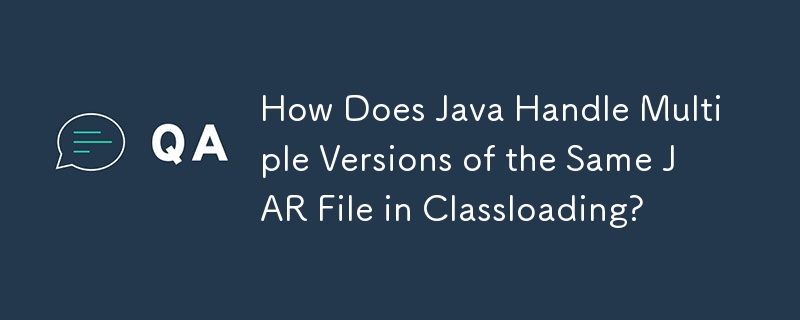

Java Classloading Dilemma: Handling Multiple Versions of the Same Jar
When working with Java libraries, it's not uncommon to encounter projects that require different major versions of the same library. While one might expect the classloader to neatly separate these versions, the reality is often more complex.
Classloader's Limitations
The Java classloader is not designed to explicitly handle multiple versions of the same library. It follows a parent-first delegation model, where each classloader delegates class loading to its parent before attempting to load it itself. This means that if two classes with the same binary name reside in different jars loaded by different classloaders, the first class found in the classpath hierarchy will be loaded regardless of version.
Class Resolution and Conflicts
When the classloader attempts to resolve a class, it searches in the following order:
If none of the classloaders in the hierarchy can find the class, a ClassNotFoundException is thrown. While the classpath may contain multiple jars containing the same class, only one will be loaded. In such a scenario, classes from other jars will not be accessible.
Handling Dependency Conflicts
To address this issue, developers have several options:
Artifact Linking
In some cases, it may be desirable to treat multiple jars as a single "package." This can be achieved through classpath manipulation. By specifying the required jars in the classpath using the "-provided" flag, the classloader will load all necessary classes from the jars. This effectively "links" the jars, allowing them to be treated as a cohesive unit.
Conclusion
While the classloader is designed to handle class loading, handling multiple versions of the same jar can be challenging. By understanding the classloader's behavior, developers can mitigate potential conflicts and effectively manage dependencies within their projects.
The above is the detailed content of How Does Java Handle Multiple Versions of the Same JAR File in Classloading?. For more information, please follow other related articles on the PHP Chinese website!




